We live in an era of what I refer to as Digital Darwinism, a time when technology and society are evolving faster than the ability of many organizations to adapt.
Over the years, I’ve studied how disruptive technology affects consumer behavior and decision-making. I’ve also researched how businesses react (or don’t) to these changes. What I’ve learned is that barring a few exceptional instances of complete ignorance, organizations are open to adaptation if there’s indeed a case made for it and a path outlined to safely and cost-effectively navigate change.
Part of the problem is that decision makers and stakeholders react to shareholders and not necessarily customers or markets. When they are ready to react, it’s typically a technology-first rather than a people-first initiative. Without understanding behavior, expectations, patterns, and new touch points, technology is often the right answer at the wrong time. It’s not unlike the famous saying about missed targets when they follow a “ready, fire, aim” command.
To mark the occasion of my upcoming book, What’s the Future of Business: Changing the way businesses create experiences, I worked with the team at Barnickel Design in New York to create an infographic that tells the chilling story of the effects of Digital Darwinism and a changing consumer landscape. To tell the story, I dissected the infographic into chapters.
Please read on to learn about how crazy things are getting and what you can do about it…(full infographic at the end)
Digital Darwinism is Accelerating
Digital Darwinism is affecting businesses and it’s only accelerating.
Only 71 companies remain today from the original 1955 Fortune 500 list.
Source: Jim Collins, author of Built to Last
Business as Usual Doesn’t Stand a Chance
In the United States alone, over 500,000 new startups emerge every year. Of that, 50% are likely fail within the first year. And, within the first five years, another 56% are expected to fail.
Source 1
Source 2
Digital Darwinism Kills Rigid Businesses Dead
The most recent recession in the U.S. had a crushing effect on businesses. Within a two year period between 2008 and 2010, 170,000 businesses are estimated to have closed. And, more businesses closed than opened in that timeframe.
No Business is Too Big to Fail or Too Small to Succeed
Between 1973 and 1983, 35% of companies in the Fortune 1000 were new to the list.
From 1983 TO 1993, 45%.
From 1993 TO 2003, 60%.
Over 70% of Fortune 1000 companies were expected to fall between 2003 and 2013
Source: Forbes
How to Survive Digital Darwinism
In 2012, BDO, LLC, a international services firm providing assurance, tax, financial advisory and consulting services to a wide range of publicly traded and privately held companies, published its Industry Watch Report. The findings presented a clear division between UK businesses that were able to take advantage of emergent growth opportunities and those who likely to wrestle with Digital Darwinism in difficult markets. As the report found, the “gap between business winners and losers widens.”
Shay Bannon, Business Restructuring Partner, BDO LLP, commented in the report, “Businesses that develop innovative products, distribution channels and a strong customer proposition will gain significant competitive advantage – irrespective of sector. Those who do not respond to the new normal are at a greater risk of falling into difficulty.”
The Hall of Shattered Dreams
When I think back to brands I grew up with and where they are today, it’s saddening to see that many of them are gone or dying. Which brands do you remember and of those, which have vanished? Leaders recognize the precious relationship a brand can have with customers. At the same time, there’s a sense of fragility, relevance and determination that must inspire leadership. As Intel’s Andy Grove often said, “Only the paranoid survive.”
While this is not the most cheerful story ever told, the silver lining is that right here, right now, management cultures must evolve into leadership cultures. And leaders must rise from somewhere and when they do, they need help…fast. You are either that leader or someone that will help leaders bring about meaningful transformation.
Competing for relevance is now a mission of every business and as such, it should be relentlessly pursued. The future of business is not about technology, greed, or short-term deals. It’s about people, purpose, and experiences.
It takes vision
It takes empathy
It takes courage.
The future of business lies in the shift from a culture of management to that of leadership and…
it begins with you.

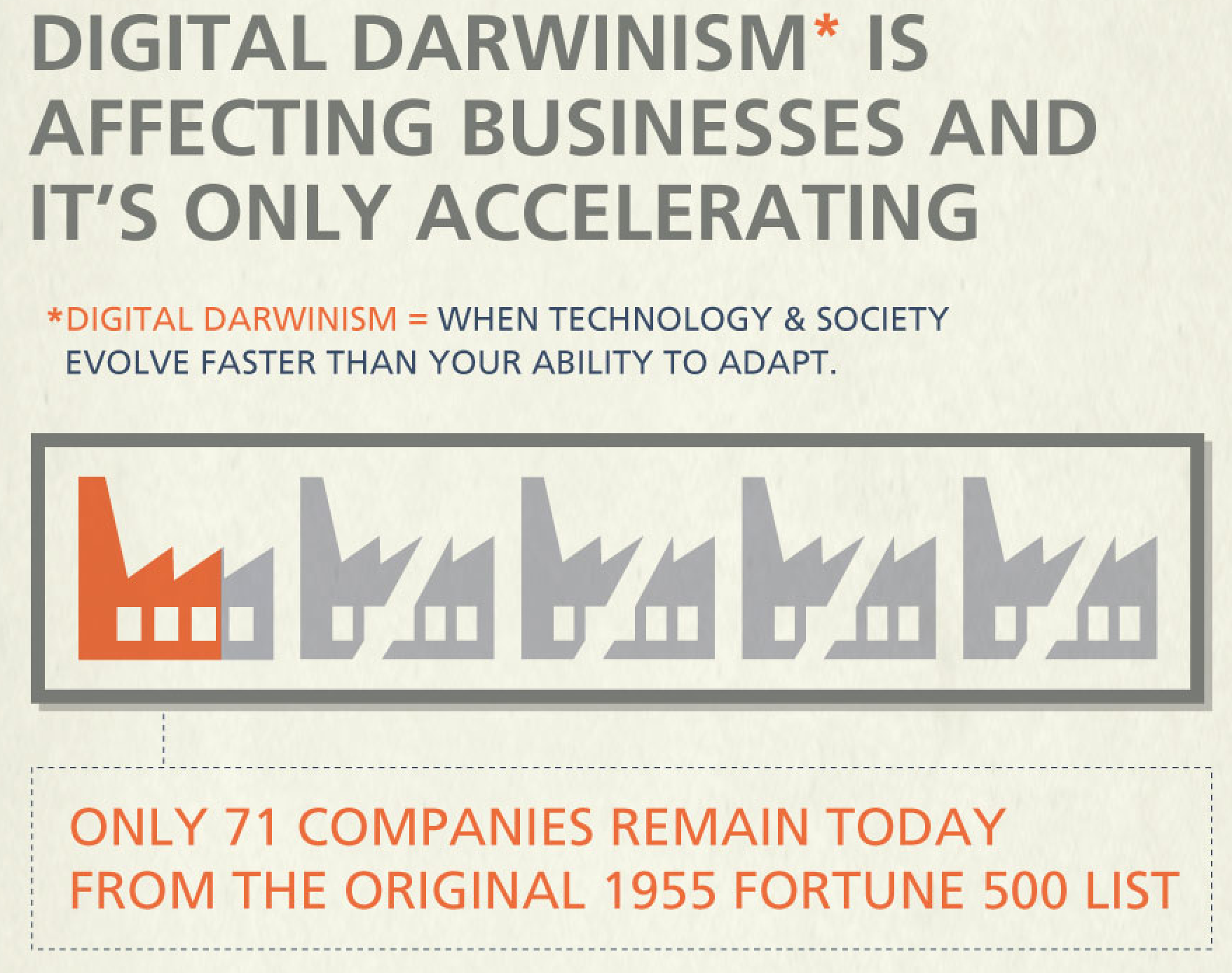
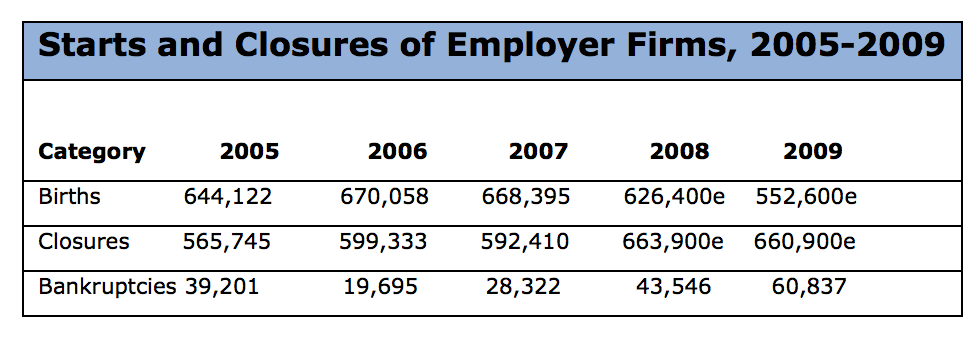
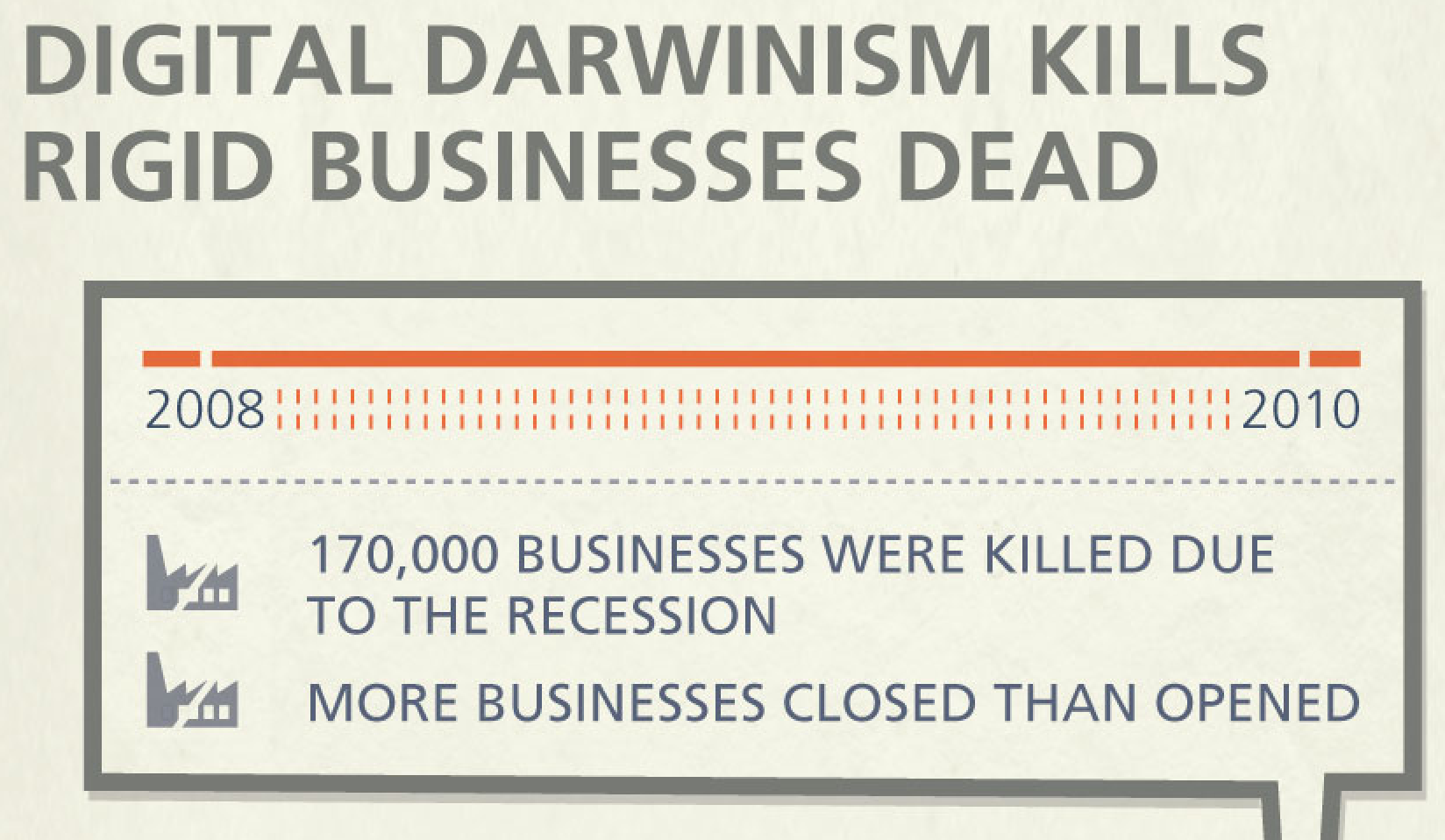
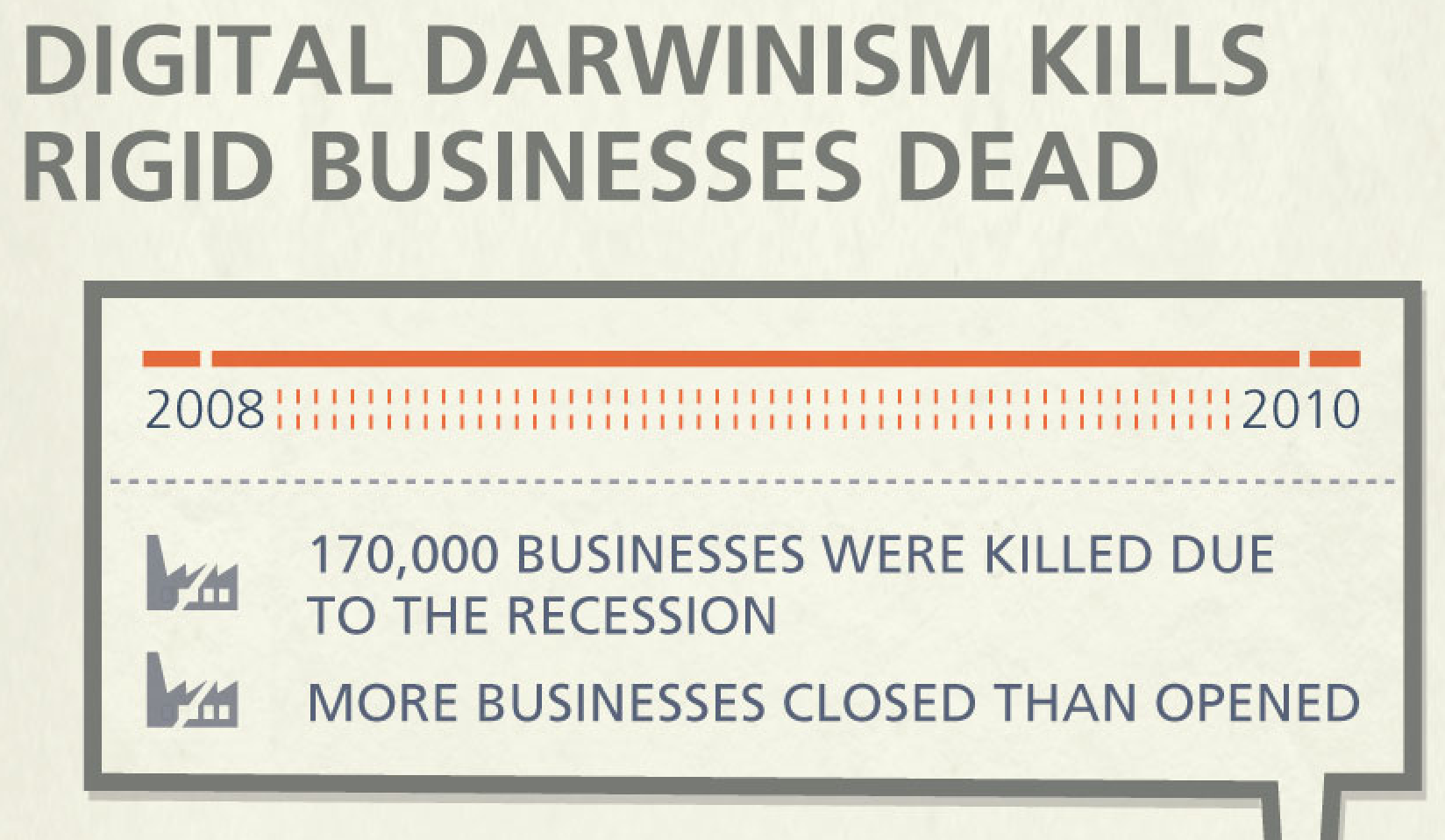
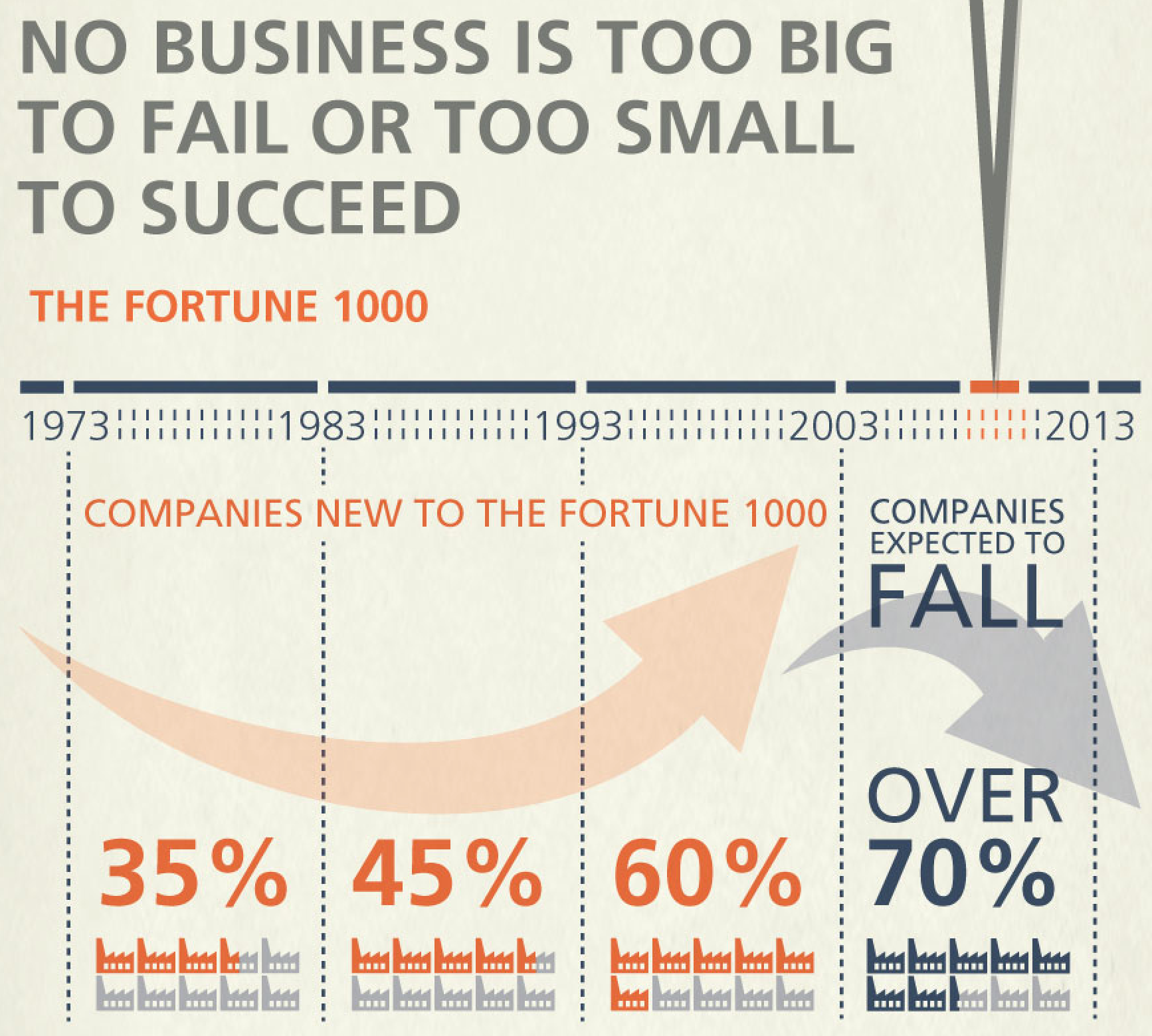
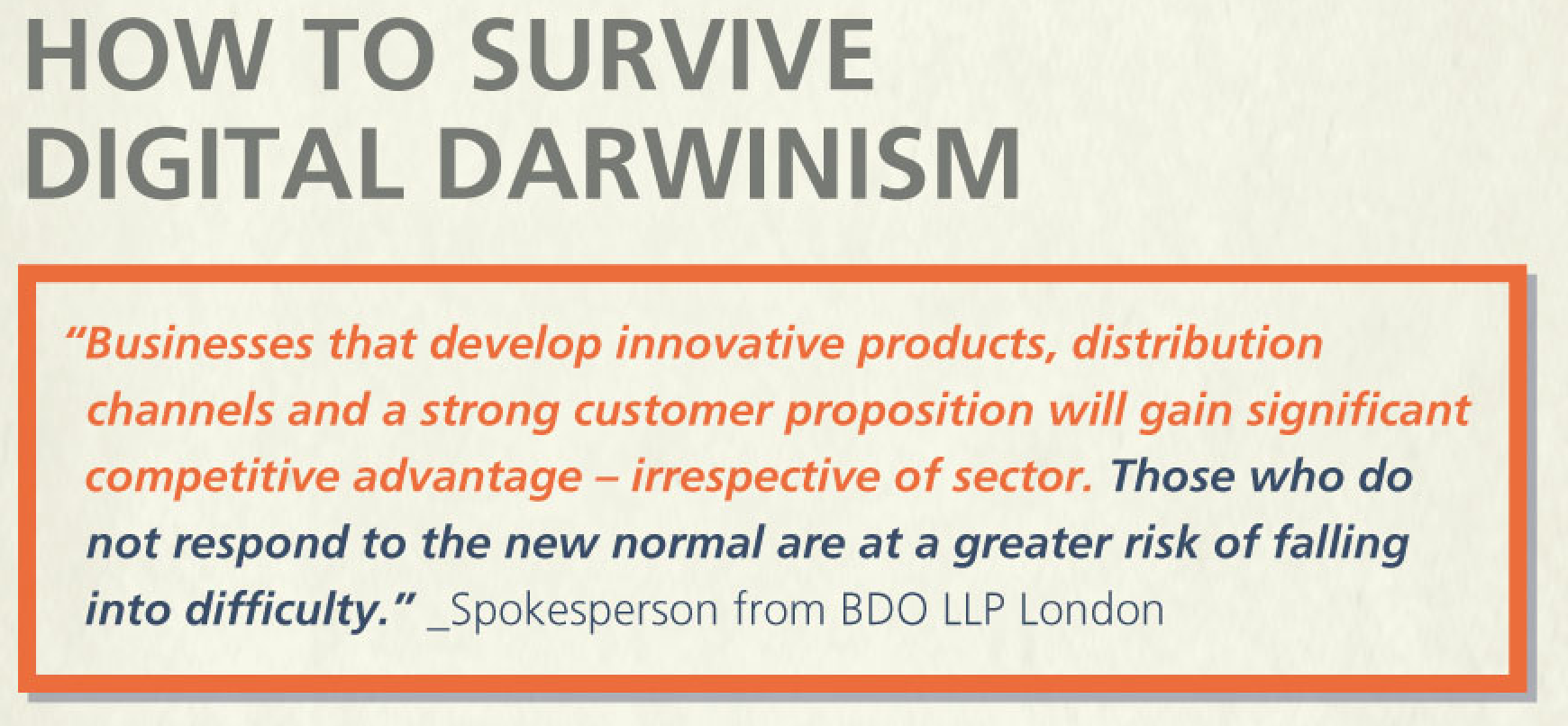


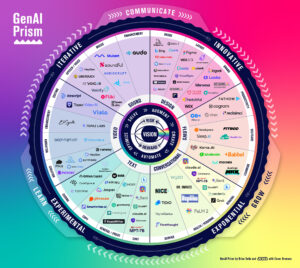

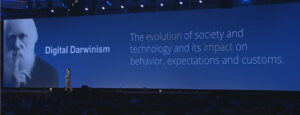

![While AI learns and gets smarter and smarter, I spend my time preparing for the future by… [fill in the blank].
The most important skills of the future are human…
#creativity, #imagination, #individuality, #criticalthinking, #empathy
bit.ly/LifescaleBook 💫
Artist: @asiersanznieto
#promptengineering #prompting #ai #genai #artificialintelligence #keynotespeaker #motivationalspeaker #motivational #motivation #education #learning #leadership #leader](https://briansolis.com/wp-content/plugins/instagram-feed/img/placeholder.png)
Love your message here, Brian. I actually think the brands added to your Hall of Shattered Dreams is only about to get more scary (with more downstream impact). I worry that our largest miss is the inability for change in company culture – for the most part, we’re still selling widgets, blind to the incredible customer needs that emerge with digital darwinism. For me, the magic is in helping organizations embrace, hunger for, and even create the disruption necessary within their organizations, their vantage and their processes. Your post reminded of Linsky and Heifetz’s wise words from “Leadership on the Line” – great leaders disappoint people at the rate they can handle it. Perhaps there is an additional learning from Digital Darwinism: we’re all going to need to master a new skill – embracing disappointment.
Jen, I love this comment. Yes. Embracing disappointment while amassing the strength necessary to take on new challenges and stubborn shareholders.
So true, to see long term success you need to create a solid plan. You need to predict your upcoming challenges so that you can tackle them properly. The most important thing is your passion to succeed, no matter how tough the conditions are.
Absolutely!
These are amazing facts. And what does it take to as individuals to stay ahead of the Darwin’s sharp talons? It’s people who are markets, not companies, and it’s the courage of these people that will help them survive and excel. Marketing Heroes rule!
Cheers!
Imagine a boat at the first time in sailing history,& next step with sextan & compass & so on gps now>What’s the Future of Business>Old hierarchical organization as usual or Social Media will lead next way of life by the World Wide Web sea surfing…& if the market is the sea since long & for long…Each drop’node is a person; each connection is a relationship’sea!;) Let’s Back To The Future of Business>after the clic’bip read the message in the book of Brian Solis!;)
Yes!
Well… This was very encouraging! Tomorrow I was supposed to start a business. This made me think twice… Now I’m scared!
Starting a business is just the beginning…making that business success is a relentless pursuit and that improves the ratio of success to failure dramatically.
Except you didn’t take the time to figure out whether this rate of failure is actually completely normal, which it is, or whether your claim that it’s speeding up (it’s actually slowing down) has merit.
Virtually none of those companies failed from “digital competition.” The video stores and the music stores, you have a point, but the rest of them just got beaten by their traditional brick and mortar competitors. (A few of them didn’t even get beaten, but rather merged.)
Try comparing these numbers to the ones from 1900-1950 and you’ll get a shock. Companies are surviving better today than they ever have before.
Hi Brian- Interesting stuff as always.
I also wanted to point out some potential issues with the categorization of a few of the “failed” companies. Effecting a “sale” of a company is often a way to unlock shareholder value, not a marker of a failure. In some cases it may be a precursor to failure, or assets of value are sold off because of failure, but it is a dangerous categorization to equate the two as most M&A processes (especially those not in a bankruptcy or similar proceeding) are done with successful companies- there aren’t a lot of buyers for failed businesses (although as noted, sometimes assets, including brands retain value and can be sold).
Also, bankruptcy is similarly a slippery slope- the bankruptcy process helps a company restructure its balance sheet. Sometimes the bankruptcy is because of the operating failure of the business, sometimes it isn’t and is just a financial restructuring. Sometimes the original shareholders stay in place, sometimes there isn’t enough value in the business to do so.
Too often a term like bankruptcy is thrown around and takes on connotations that are not accurate-a misaligned balance sheet doesn’t always equate to an operational business failure.
Man that was some of the best gathering of evidence for a point I have ever seen on a blog. That may say something about what I read online however I think you did a great job. I am always looking for ways to explain the times to clients. Thanks for the information.
Thank you David for the comment!
It is indeed a shame to see so many of these houshold names going down the pan these days.I just shows how things are changing for even the large corporations these days and they need to move with the times or die.
What is a business anyway, but a group of people acting together to help others. The form does not matter, only function. Tribes, churches, gangs are all businesses, except they do not have formal articles of incorporation, marketing departments, hourly wages, etc.
At one time whaling industry was important, but it did not survive because of a lack of vision or hard work, rather the need for whaling products evaporated. Similarly if a group of people manufactured 78 rpm vinyl records today, all their vision, courage, empathy, drive would not be rewarded.
Just like people, business need to realize they are mortal and will eventually die off. Only the most egotistical business believes it will live forever.
The true leader plans how the business will exit the stage gracefully when it is time, so the next generation will prosper. A company like Enron had such a massive ego, that it caused its employees and shareholders irreputable harm. Yet a company like DuPont has kept generations properous by building an enduring of philantrophy and realistic expectations.
Some of these pictures are broken, please update these as this theme is ephemeral.
fixed and thank you…
Do you have a spam issue on this site; I also am a
blogger, and I was wanting to know your situation; many of
us have created some nice practices and we are looking to trade solutions with
others, be sure to shoot me an e-mail if interested.
Hi there colleagues, good piece of writing and good arguments commented at this place, I am
actually enjoying by these.